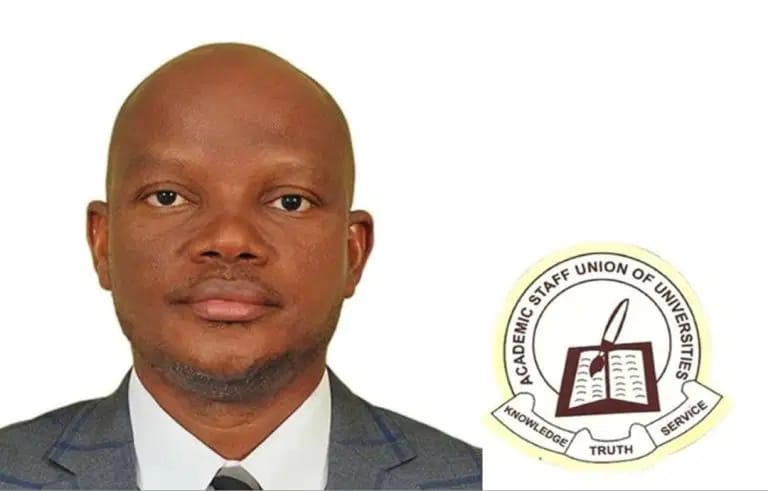In a major development that brings temporary relief to millions of students across Nigeria, the Academic Staff Union of Universities (ASUU) has officially suspended its two-week warning strike following what it described as “significant progress” in negotiations with the Federal Government. The announcement was made after the union’s National Executive Council (NEC) meeting held at the University of Abuja, with ASUU President, Prof. Christopher Piwuna, confirming the decision late Tuesday evening.
The decision marks a cautious step toward reconciliation after weeks of heightened anxiety within Nigeria’s education sector. However, ASUU’s suspension of the strike is not without conditions — the union has issued a one-month ultimatum to the government to meet its outstanding demands or risk a full-blown industrial action.
Background: Why ASUU Went on Strike
ASUU declared the two-week warning strike on October 12, primarily to express its frustration over the Federal Government’s failure to implement previous agreements and address the persistent underfunding of public universities. The union’s grievances have been building up for years, rooted in issues that date back to the 2009 ASUU-FGN Agreement, which remains largely unfulfilled.
Among ASUU’s major demands are:
- Full implementation of the renegotiated 2009 ASUU-FGN Agreement.
- Revitalisation funding for public universities to address decaying infrastructure.
- Payment of outstanding promotion arrears and earned academic allowances (EAA).
- Release of withheld salaries and remittance of third-party deductions.
- End to the alleged victimisation of ASUU members in institutions such as Lagos State University (LASU) and Federal University of Technology, Owerri (FUTO).
According to the union, these unresolved issues have continuously undermined the quality of education in Nigeria and worsened the conditions of service for university lecturers.
Negotiations and Government Response
Following days of dialogue between ASUU’s negotiation team and the Federal Government delegation led by Alhaji Yayale Ahmed, progress was reportedly made in several areas, prompting the union to suspend its strike temporarily.
The government team is believed to have assured the union of concrete steps toward addressing the outlined grievances, including the release of revitalisation funds, payment of arrears, and a roadmap for implementing the renegotiated agreement.
However, ASUU maintains that its decision to suspend the strike does not equate to total satisfaction. Instead, it reflects a strategic gesture of goodwill — allowing the government time to act while avoiding further disruptions to academic calendars.
ASUU’s One-Month Ultimatum: A Warning with Weight
In his statement, ASUU President Prof. Christopher Piwuna emphasized that the strike suspension is conditional and that the union remains fully mobilized should the government fail to deliver within the agreed period.
“We have suspended our warning strike to give room for genuine implementation of our demands. But if within the next one month nothing tangible happens, we will not hesitate to resume,” he stated.
This one-month window serves as both a reprieve for students and a test of sincerity for the government. Historically, similar assurances have often ended in disappointment, leading to repeated cycles of industrial action.
Reactions from Stakeholders
The announcement has sparked mixed reactions from across the education sector.
- Students’ Reactions: Many undergraduates expressed relief at the suspension, hopeful that normalcy would return to campuses after weeks of uncertainty. However, some remain skeptical, fearing another abrupt disruption if talks break down again.
- Parents and Guardians: Parents welcomed the decision but urged both ASUU and the Federal Government to find a lasting solution to prevent future strikes.
- Nigeria Labour Congress (NLC): The NLC, which had earlier given the government a four-week ultimatum to resolve the crisis, commended ASUU’s decision to suspend the strike but reminded the authorities that patience among workers and students is running thin.
Lingering Issues: Old Wounds, New Promises
Despite the progress reported in recent meetings, many of ASUU’s demands remain unresolved.
The union continues to insist on the:
- Release of revitalisation funds for infrastructure renewal.
- Payment of outstanding EAA owed to academic staff.
- Implementation of the University Transparency and Accountability Solution (UTAS) as a replacement for the controversial IPPIS platform.
- Immediate clearance of unpaid salary and promotion arrears.
Educational analysts have pointed out that unless these key demands are addressed holistically, the current peace may only be temporary.
Implications for the Academic Community
The suspension of the strike offers universities a chance to resume normal academic activities and recover lost time. However, it also comes with a note of caution.
University management teams across the country have been advised to adjust their academic calendars to accommodate missed lectures and examinations. But lecturers remain on alert, as the strike could be reinstated if promises are not kept within the one-month window.
The uncertainty surrounding ASUU strikes has long-term effects on students, academic standards, and institutional credibility. Experts argue that repeated disruptions have contributed to brain drain, declining global rankings for Nigerian universities, and diminished student motivation.
A Call for Lasting Reform
The latest standoff once again highlights the fragile state of Nigeria’s tertiary education system. Stakeholders are now urging both the Federal Government and ASUU to pursue a comprehensive and permanent resolution rather than temporary fixes that lead to recurring crises.
Education experts have suggested that sustainable solutions will require:
- A legally binding agreement with clear implementation timelines.
- Transparent disbursement of revitalisation funds.
- Institutional autonomy for universities to manage finances and staff welfare.
- Regular reviews of the education budget to align with international standards.
Conclusion: Hope or Another Cycle?
While ASUU’s suspension of its two-week warning strike brings temporary relief to students and parents nationwide, the future remains uncertain. The next thirty days will determine whether the government’s promises translate into meaningful action or whether Nigeria’s universities will once again be thrown into chaos.
For now, campuses are reopening, lectures are resuming, and optimism cautiously returns. Yet beneath the surface lies a familiar anxiety — a question that has haunted Nigeria’s education system for decades: will this peace last?



